Are you tired of using low-quality threads that break easily or don’t work well with your Brother’s sewing machine? You’re not alone. As a seamstress or tailor, choosing the right thread for your sewing machine can be a daunting task. But fear not, because in this blog post, we’ll be diving deep into the world of sewing threads and exploring the best options for your Brother’s sewing machine.
With so many types of threads available, it’s essential to know what to look for when selecting the perfect one for your projects. Whether you’re working with delicate fabrics, heavy-duty materials, or stretchy fabrics, I got you covered. From polyester to cotton and everything in between, we’ll be discussing the pros and cons of each type of thread and sharing our top picks for the best thread for Brother’s sewing machines. So, sit tight and get ready to upgrade your sewing game!
TOP-5 the best thread for Brother’s sewing machine
| Image | Product | |
|---|---|---|
Best Choice 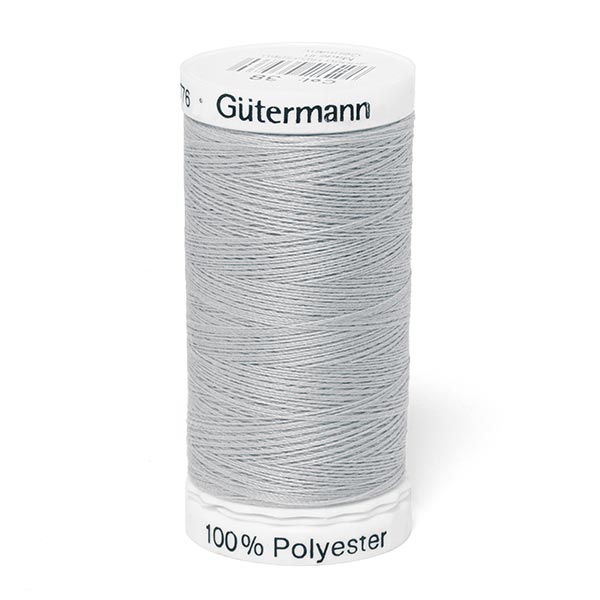 | Gutermann Sew-All Thread
| Check Price |
Also great 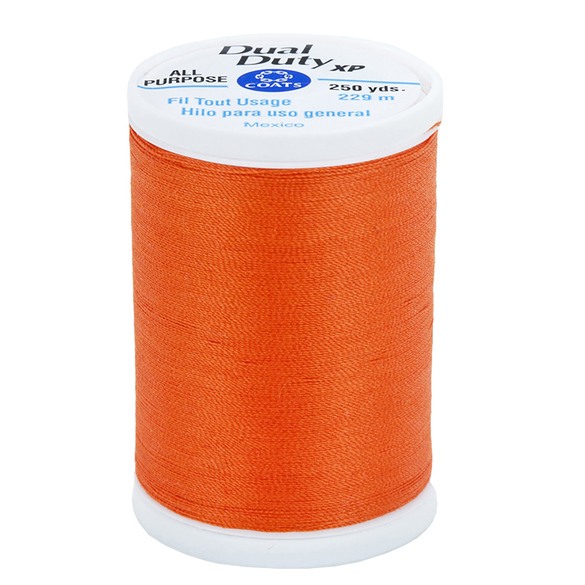 | Coats & Clark Dual Duty XP Thread
| Check Price |
Best Value 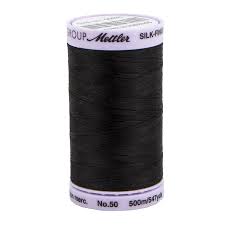 | Mettler Silk Finish Cotton Thread
| Check Price |
Great for Quilting 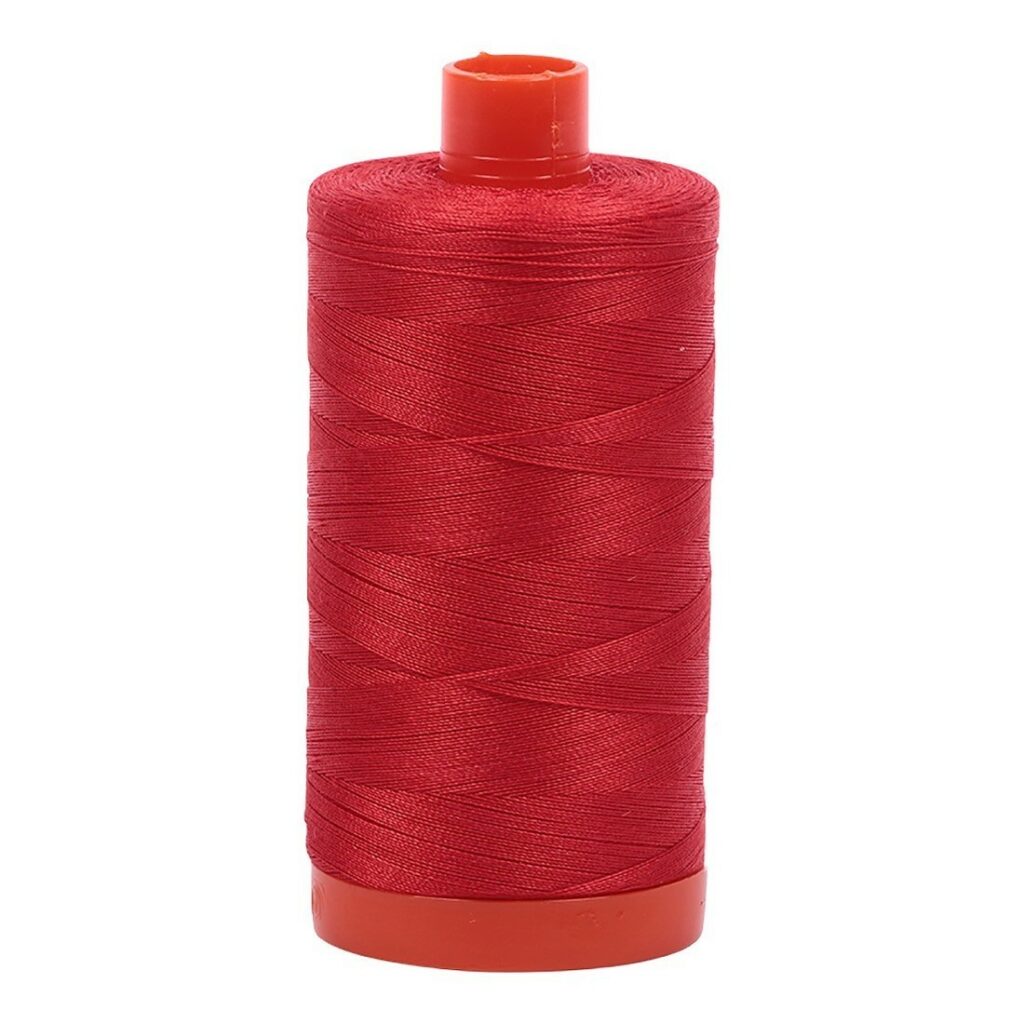 | Aurifil Cotton Thread
| Check Price |
Great for Bobbin Thread 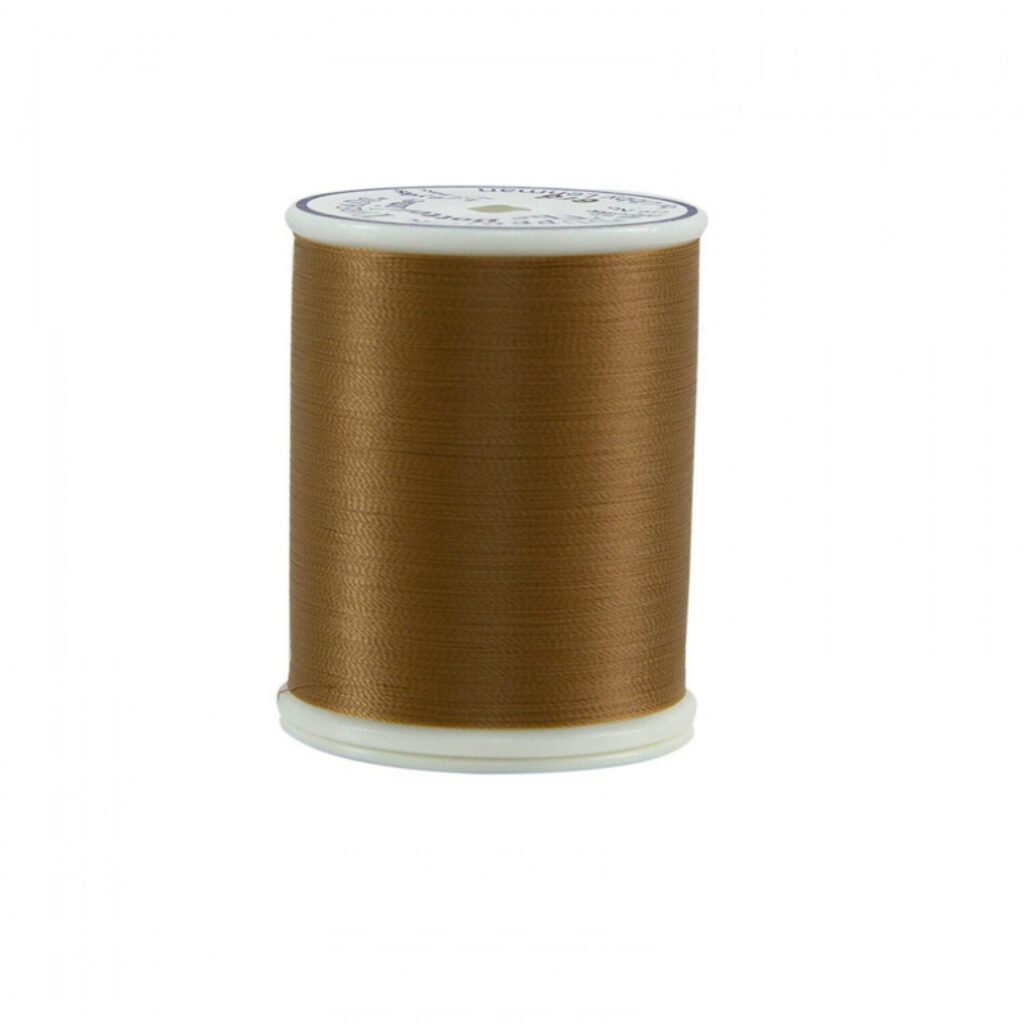 | Superior Threads Bottom Line Thread
| Check Price |
These threads have all received high ratings from users and are known for their quality, strength, and versatility. Depending on your sewing project and personal preferences, any of these threads could be a great choice for your Brother’s sewing machine.
Gutermann Sew-All Thread
I recently had the pleasure of trying out the Gutermann Sew-All Thread, and I must say, I was impressed. Here’s my opinion on this top-rated thread for Brother’s sewing machines.
Strong and Versatile
I used Gutermann Sew-All Thread to sew together some heavy-duty canvas material, and it held up beautifully. The thread didn’t break or fray, even when I put the seams under some serious stress. Additionally, I found that this thread worked well with a variety of different fabrics, from cotton to polyester to even some more delicate fabrics like silk.
Colorfast
I’ve had issues in the past with threads that bleed or fade after washing, but I didn’t have any issues with this one. The color stayed true even after washing and drying my project multiple times.
Smooth Sewing
I didn’t have any issues with the thread tangling or knotting, which is something I’ve struggled with in the past. The thread fed smoothly through my Brother’s sewing machine, and I found that I didn’t have to adjust the tension as much as I usually do with other threads.
One Weakness
If there is one potential downside to the Gutermann Sew-All Thread, it’s that it can be a bit more expensive than some of the other thread options out there. However, I believe that the quality of the thread more than makes up for the price difference.
Overall Impressions
I would highly recommend the Gutermann Sew-All Thread for anyone looking for a strong, versatile, and colorfast thread for their Brother’s sewing machine. Whether you’re working on heavy-duty materials or more delicate fabrics, this thread is sure to get the job done. It may cost a bit more, but I believe it’s worth the investment for the quality and durability it provides.
Coats & Clark Dual Duty XP Thread
The Coats & Clark Dual Duty XP Thread is one of my favorites. Here’s why:
Strong and Durable
I’ve used this thread for everything from quilting to sewing heavy-duty fabrics like canvas and denim, and it has held up well every time. It’s also resistant to abrasion and fraying, which means that my projects are less likely to fall apart over time.
Wide Range of Colors
Whether I’m looking for a basic neutral shade or a bright and bold color, I can usually find what I need in this thread line. The colors are also very vibrant and don’t fade easily, which is important when you’re working on a project that will be washed frequently.
Affordable and Widely Available
I can usually find it at my local fabric or craft store, and I don’t have to break the bank to buy it. This makes it a great choice for beginner sewers who don’t want to invest a lot of money in their supplies.
However, it’s worth noting that there are some potential drawbacks to the Coats & Clark Dual Duty XP Thread. For example:
Potential Tangles
I have found that this thread can be prone to tangling, especially if I’m using a spool that’s nearly empty. This can be frustrating when you’re in the middle of a project and have to stop to untangle the thread.
Not Ideal for Heavy-Duty Projects
While the Coats & Clark Dual Duty XP Thread is strong and durable, I have found that it’s not the best choice for extremely heavy-duty projects. If I’m sewing something like leather or thick canvas, I usually opt for a heavier-duty thread.
Overall, I think the Coats & Clark Dual Duty XP Thread is a great choice for most sewing projects. It’s strong, durable, and comes in a wide range of colors, all at an affordable price point. While it may not be the best choice for extremely heavy-duty projects or those that require a lot of precision, it’s a solid all-around thread that I would recommend to most sewers.
Mettler Silk Finish Cotton Thread
Silky Smooth Texture
One of the things I love about this thread is its silky smooth texture. It glides through the fabric easily, making it perfect for both hand-sewing and machine-sewing projects. This also means that there is less friction when sewing, which reduces the risk of breaking the thread or damaging the fabric.
Strong and Durable
Despite its silky texture, the Mettler Silk Finish Cotton Thread is also incredibly strong and durable. I have used it for everything from sewing lightweight fabrics to creating heavy-duty quilts, and it has held up well every time. The thread is also resistant to fraying and breaking, which is important when you’re working on a project that will see a lot of wear and tear.
However, there are a few potential drawbacks to consider with the Mettler Silk Finish Cotton Thread:
Price Point
Compared to other threads on the market, the Mettler Silk Finish Cotton Thread can be a bit pricier. While I do think it’s worth the cost for its quality, it may not be the most affordable option for everyone.
Not Ideal for Heavier Fabrics
While the Mettler Silk Finish Cotton Thread is strong and durable, I have found that it’s not the best choice for extremely heavy fabrics.
Aurifil Cotton Thread
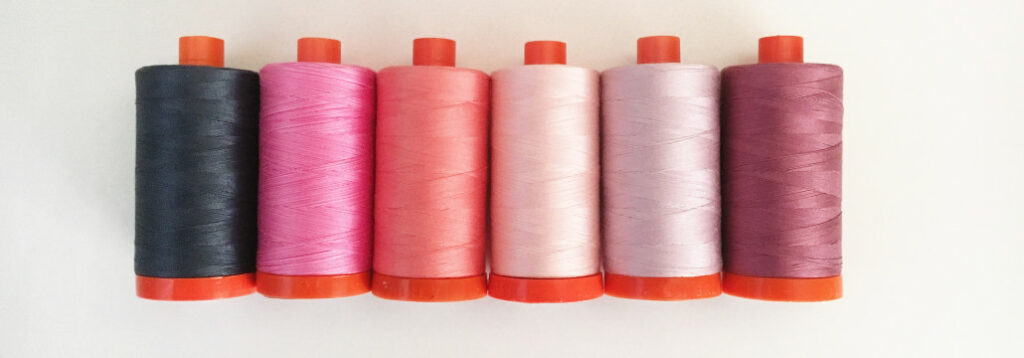
Smooth and Consistent
The first thing I noticed when using the Aurifil Cotton Thread is how smooth and consistent it is. It doesn’t snag or break easily, which is important when you’re working on a project that requires precision. The thread also has a very consistent thickness throughout the spool, which ensures a consistent stitch and reduces the risk of tangling.
Great for Quilting
I have found that the Aurifil Cotton Thread is particularly great for quilting projects. It has a strong, even stitch that holds up well to the wear and tear of daily use. The thread is also very fine, which means it doesn’t add bulk to the quilt and allows the fabric to drape nicely.
However, there are a few potential drawbacks to consider with the Aurifil Cotton Thread:
Limited Strength
It is not as strong as some other threads on the market, so it may not hold up as well over time.
Price Point
The Aurifil Cotton Thread can be a bit more expensive than other threads on the market. While I do think it’s worth the cost for its quality, it may not be the most affordable option for everyone.
Superior Threads Bottom Line Thread
Superior Threads Bottom Line Thread is a popular choice among sewists, and I have used it on numerous occasions. Here’s what I think about it:
Great for Bobbin Thread
I’ve used it to sew lightweight fabrics like silk and chiffon, and it has performed exceptionally well. It creates smooth, even stitches, and I never had any issues with thread breakage or tension.
Strength and Durability
The Bottom Line Thread is made from 60-weight polyester, which gives it the strength and durability needed for everyday sewing. It’s also resistant to abrasion, making it ideal for sewing projects that will receive a lot of wear and tear.
Invisible Seam
Another advantage of the Bottom Line Thread is that it creates an almost invisible seam. This is particularly useful when I’m working on projects that require a lot of seam blendings, like quilts or garments. It allows me to create a seamless look without the bulk.
Overall, I would highly recommend the Superior Threads Bottom Line Thread to anyone looking for a high-quality, durable, and versatile bobbin thread. It may be a bit pricier than other options, but its performance and quality more than makeup for the cost.
Alternatives
When it comes to sewing threads, there are many options on the market. While the five threads we reviewed above are some of the best, there are still other products worth considering.
- For those who are looking for an eco-friendly option, the GOTS-certified organic cotton threads from Scanfil are a great choice. They come in a range of colors and weights and are suitable for all kinds of sewing projects.
- If you need a heavy-duty thread for outdoor gear, upholstery, or leatherworking, the Tera 80 Bonded Nylon Thread is a fantastic option. It’s strong and durable, yet still flexible enough to sew through tough materials.
- For those who prefer to use polyester thread, the Signature Thread company offers a variety of weights and colors in their Extra Strong Polyester line. This thread is great for sewing through heavy fabrics or for use in sergers and overlock machines.
- Lastly, if you’re looking for a budget-friendly option, the Sew-ology All Purpose Thread is a great value. While it may not have the same strength or durability as some of the other threads we reviewed, it’s still a reliable choice for basic sewing projects.
Choosing Tips
After testing and reviewing the best thread options for Brother’s sewing machines, I’ve identified several key decision-making factors that are important to consider when choosing a thread. These factors include the quality and strength of the thread, its ability to withstand tension and breaking, its compatibility with different fabrics and sewing techniques, and its overall value for money.
- When it comes to quality and strength, all of the top threads I reviewed perform exceptionally well. They’re made from high-quality materials and are designed to resist breakage, even when used on heavy fabrics or for long periods of time.
- In terms of tension and breaking, the Gutermann Sew-All Thread and the Coats & Clark Dual Duty XP Thread stood out for their ability to maintain consistent tension throughout the sewing process, reducing the likelihood of breaking or snarling.
- Compatibility with different fabrics and techniques is also an important consideration. The Mettler Silk Finish Cotton Thread and the Aurifil Cotton Thread both performed well on a variety of fabrics, including delicate and stretchy materials. The Superior Threads Bottom Line Thread is an excellent option for use in the bobbin, as it’s thin and strong enough to prevent tangling or jamming.
- Finally, value for money is an important factor for many sewists. While all of the top threads I reviewed are on the pricier side, they’re well worth the investment for their quality and performance. The Gutermann Sew-All Thread offers a great balance of affordability and quality, while the Mettler Silk Finish Cotton Thread is a luxurious option for those willing to splurge.
Where else can you find information about the best thread for Brother’s sewing machine
- https://www.brother-usa.com
- Brother’s official website is a great resource for information about their sewing machines and compatible threads. They have a helpful FAQ section and product manuals that you can download for free. Additionally, they have a blog with tips and tutorials that can help you get the most out of your sewing machine.
- https://www.coatsandclark.com
- This article by Coats & Clark is an excellent resource for anyone looking to choose the right sewing thread. It covers topics such as thread weight, fiber content, and color selection. The article also includes helpful tips and tricks to make sure your sewing projects turn out perfectly.
- https://www.sailrite.com
- This article by Sailrite is a great resource for learning about the different types of thread available and their uses. It covers the pros and cons of nylon, polyester, and cotton thread and includes helpful tips for choosing the right thread for your project. The article also includes a helpful chart to make thread selection easier.
Additional equipment
| Equipment | Description |
|---|---|
| Brother Sewing Machine | A sewing machine specifically designed for use with Brother's thread, with automatic needle threading, adjustable stitch length and width, and other features that make it easier to work with the thread. |
| Sewing Needles | Needles that are compatible with the sewing machine and thread being used, with different sizes and types available for different fabrics and applications. |
| Scissors | Sharp scissors for cutting thread and fabric accurately, with a comfortable grip that allows for extended use without discomfort or fatigue. |
| Seam Ripper | A small tool used for undoing seams and stitches that have been sewn incorrectly or need to be removed for alterations or repairs. |
| Thread Snips | Small, sharp scissors designed for cutting thread, with a spring-loaded handle that opens the blades automatically after each cut. |
| Bobbins | Small spools that hold the thread and are used in the sewing machine to create the stitch, with different sizes and types available for different machines and applications. |
| Thread Stand | A device that holds the spool of thread and guides it smoothly to the sewing machine, helping to prevent tangling and breakage. |
| Sewing Gauge | A small ruler or measuring tool used to ensure accurate seam allowances and other measurements in sewing projects. |
| Iron and Ironing Board | An iron and ironing board for pressing and flattening fabric, ensuring that seams are neat and tidy and that the finished garment looks professional. |
This is just a basic list, and there may be other equipment that is needed depending on the specific project being worked on.
FAQ
You should use high-quality thread that is compatible with your machine. Some of the best options include Gutermann Sew-All Thread, Coats & Clark Dual Duty XP Thread, Mettler Silk Finish Cotton Thread, and Aurifil Cotton Thread.
It is important to use thread that is compatible with your machine. Using the wrong type of thread can cause tension issues, breakage, and other problems. Always check your machine’s manual for recommended thread types.
Choosing the right thread color depends on the fabric color and the desired look of the finished product. A good rule of thumb is to choose thread that matches the fabric color or a shade lighter.
Cotton thread is a natural fiber that is soft and has a matte finish. It is ideal for sewing natural fibers like cotton, linen, and wool. Polyester thread is a synthetic fiber that is strong and has a shiny finish. It is ideal for sewing synthetic fabrics like polyester, nylon, and rayon.
To keep your thread in good condition, store it in a cool, dry place away from direct sunlight. You can also use a thread rack or storage box to keep your thread organized and easily accessible.
It is generally not recommended to mix different types of thread in the same project. Different types of thread can have different properties and stretchability, which can affect the final look and feel of the project.


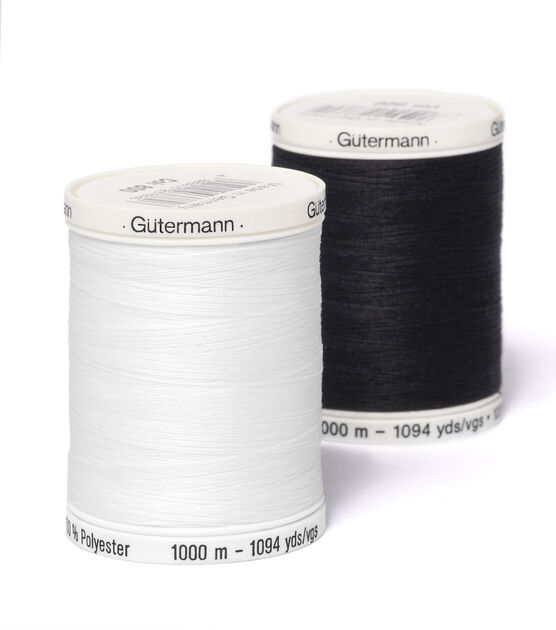
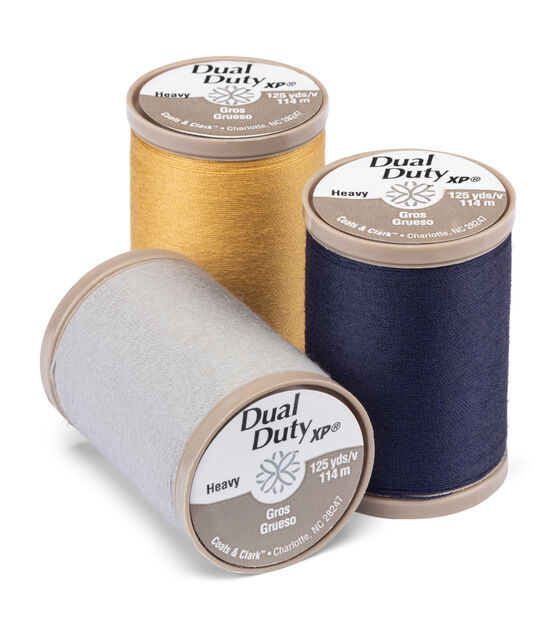
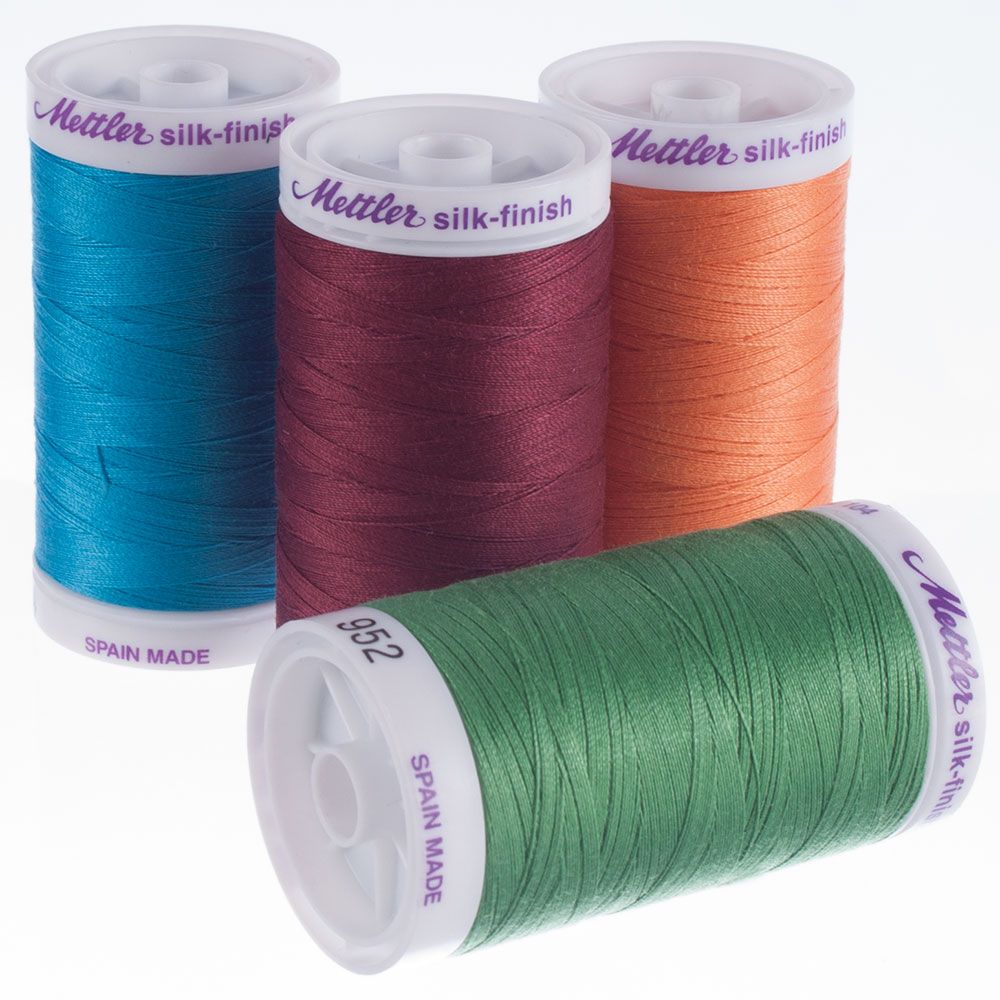
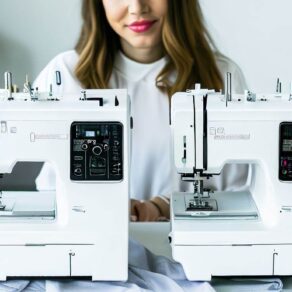
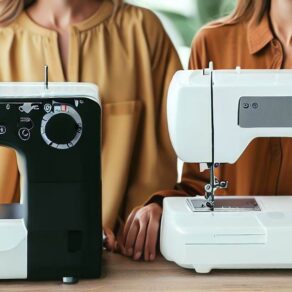
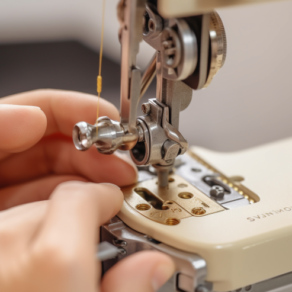
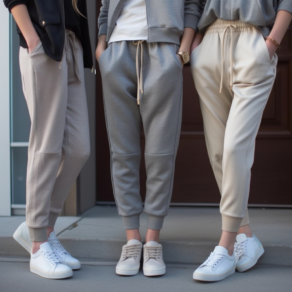

Leave a Comment